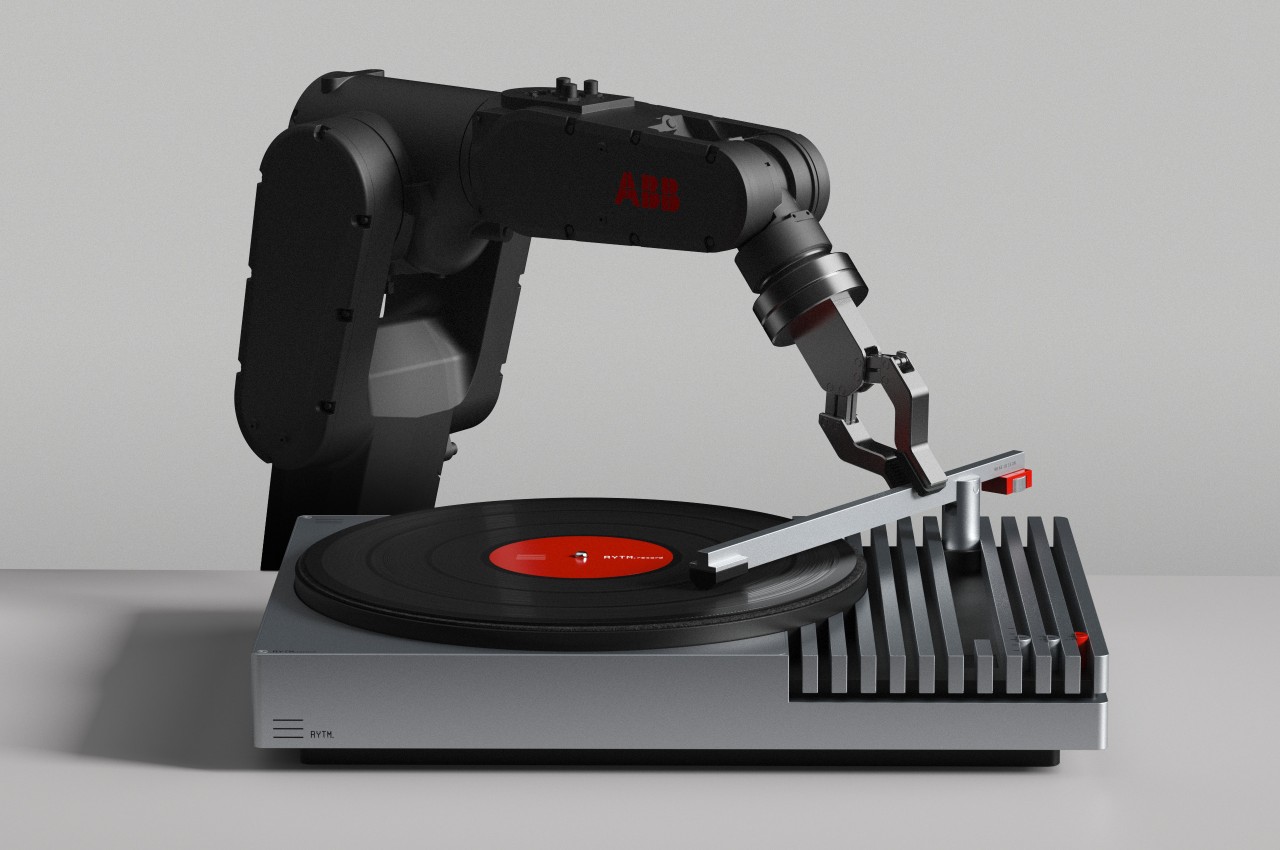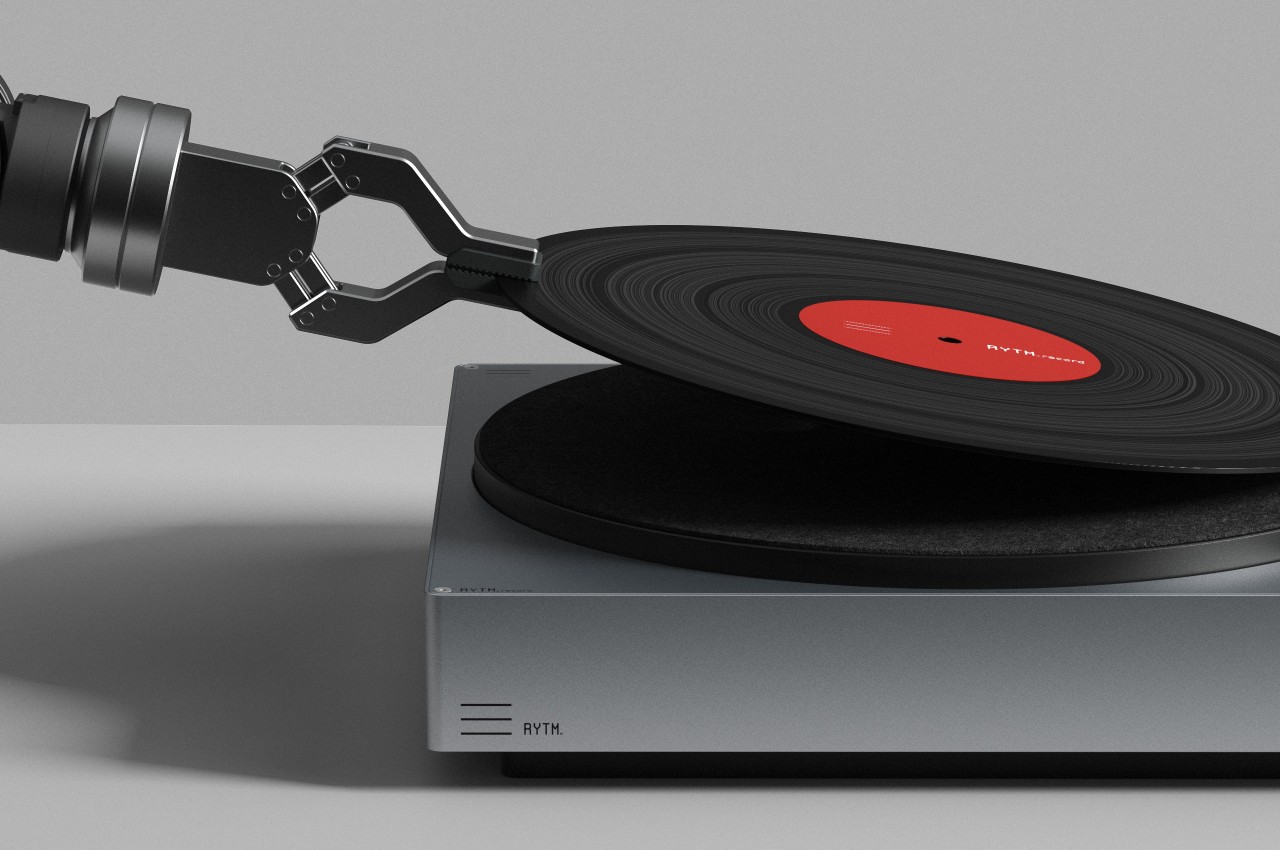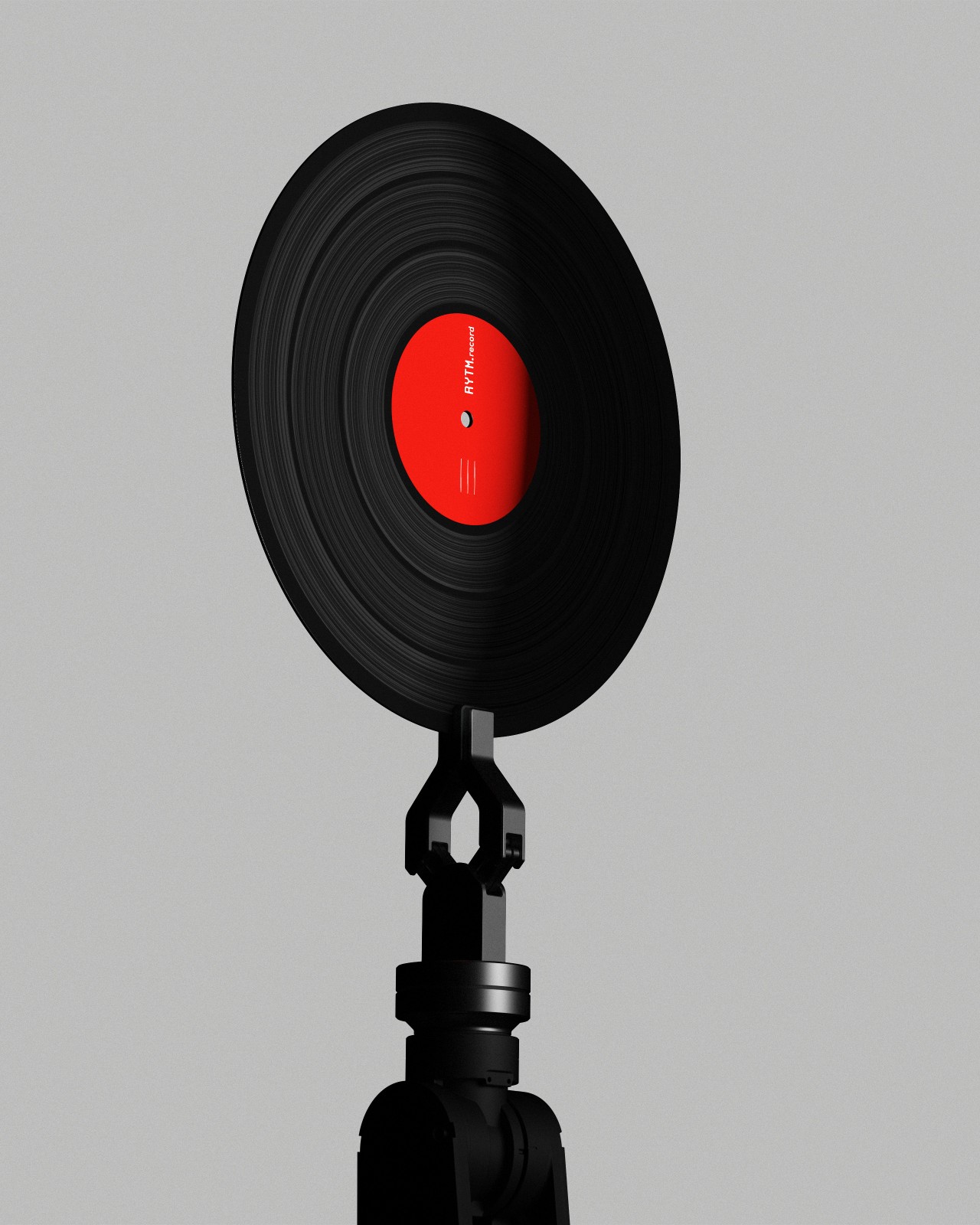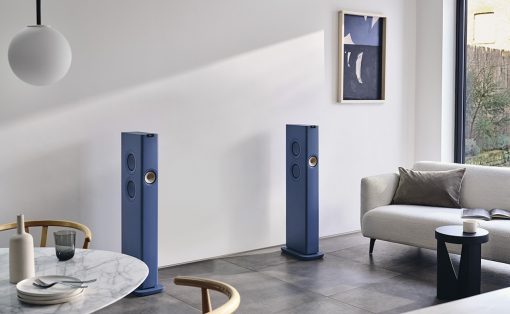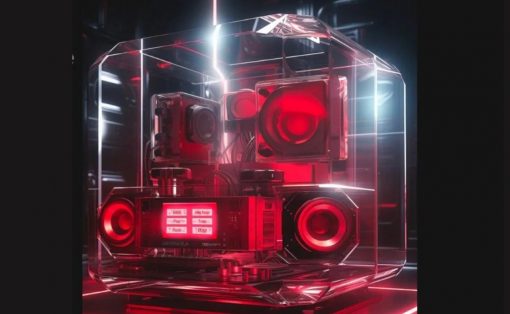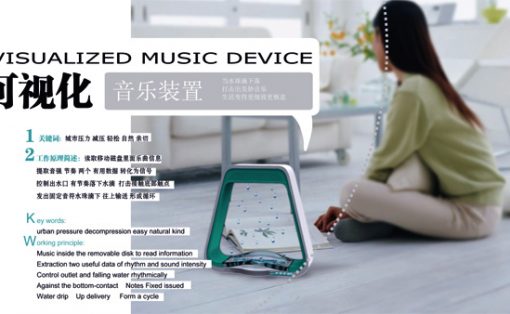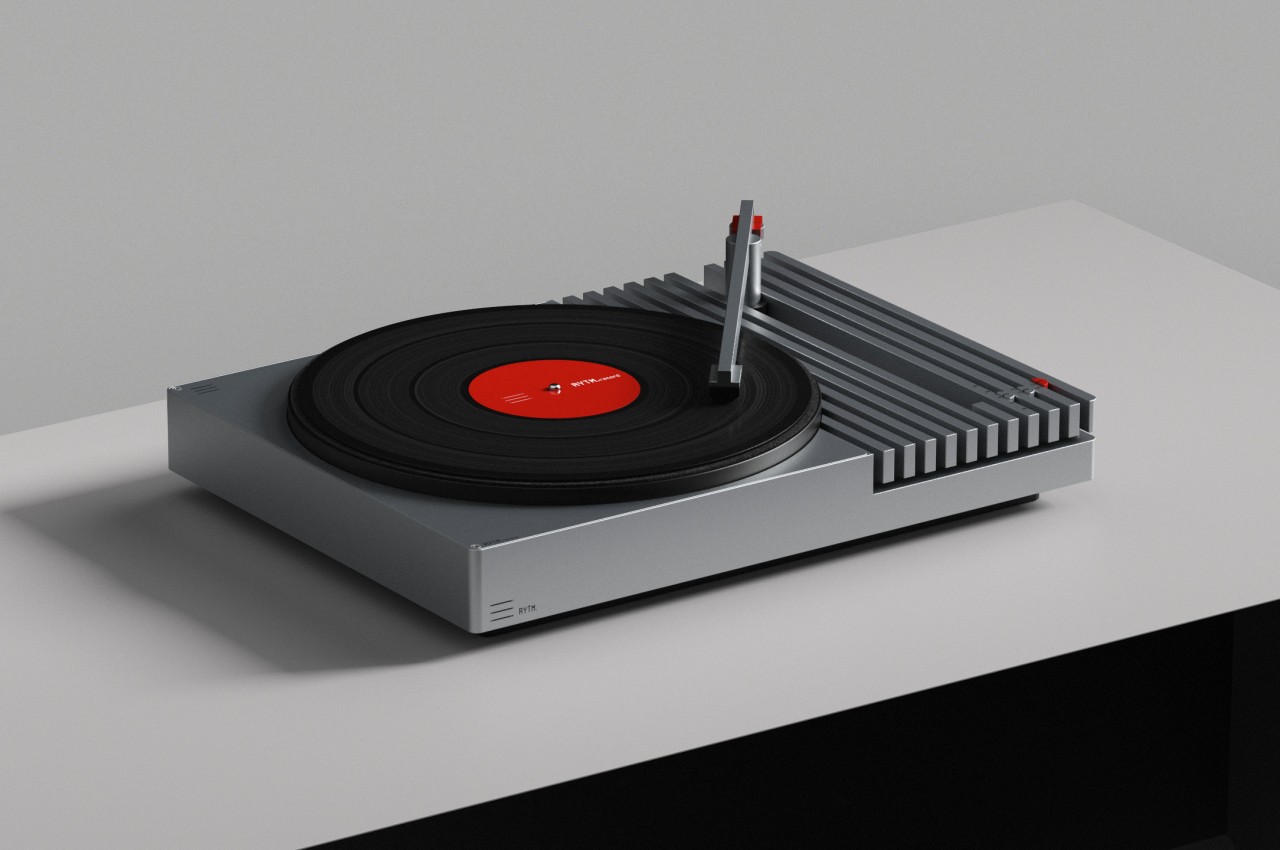
Record players are en vogue again, and thanks to interest in the product, we’ve seen quite a few designs that go beyond the simple task of playing a vinyl record. There’s a wide variety of designs, ranging from minimalist to eccentric, from utilitarian to decorative. The requirements for a record player design aren’t many, as long as it’s able to actually produce the audio quality unique to the medium and have usable controls that don’t get in the way. Thanks to that, there’s plenty of leeway in how to interpret a record player design, and this particular concept takes advantage of that in order to create a fusion of an audio device and architecture, presenting a unique visual and tactile experience for audiophiles.
Designer: Jorge Paez

The standard record player design involves a box with a circular plate on top, a tonearm that holds the head reader, and controls on the top or side of that box. There’s no hard rule for that design, of course, just that it’s the most efficient way to cram components and mix shapes. When it comes to space and shape efficiency, however, nothing is more precise than architecture, which is exactly the source of inspiration for this distinctive concept design for a record player.
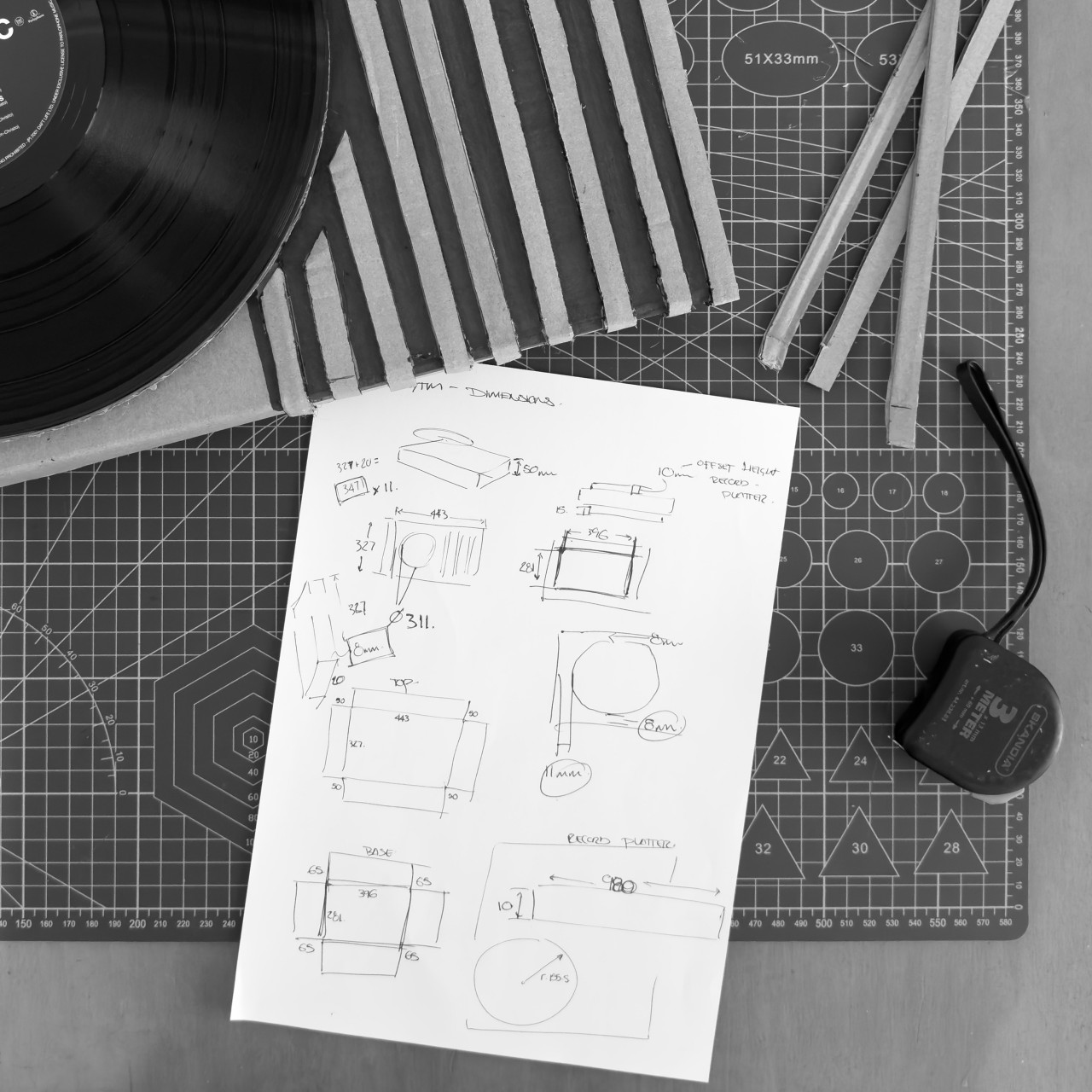
Right off the bat, you will notice the slats that run across a section of the aluminum chassis that’s not covered by the platter. This design is reminiscent of many architectural forms, but it serves more than just a visual function in this design. One of those slats is actually the tonearm, giving this important part of the record player a home when not in use and preventing accidents due to leaving it exposed.
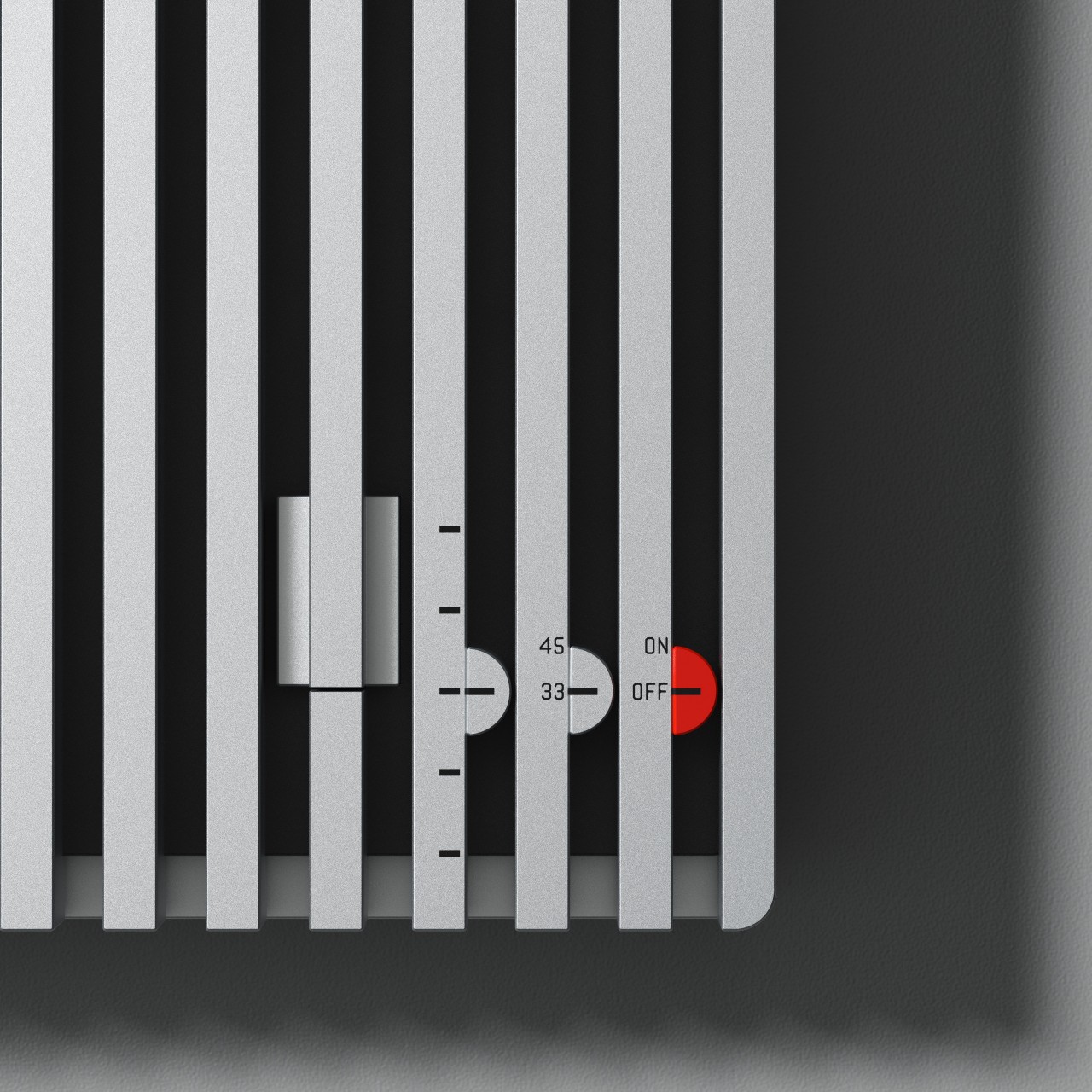
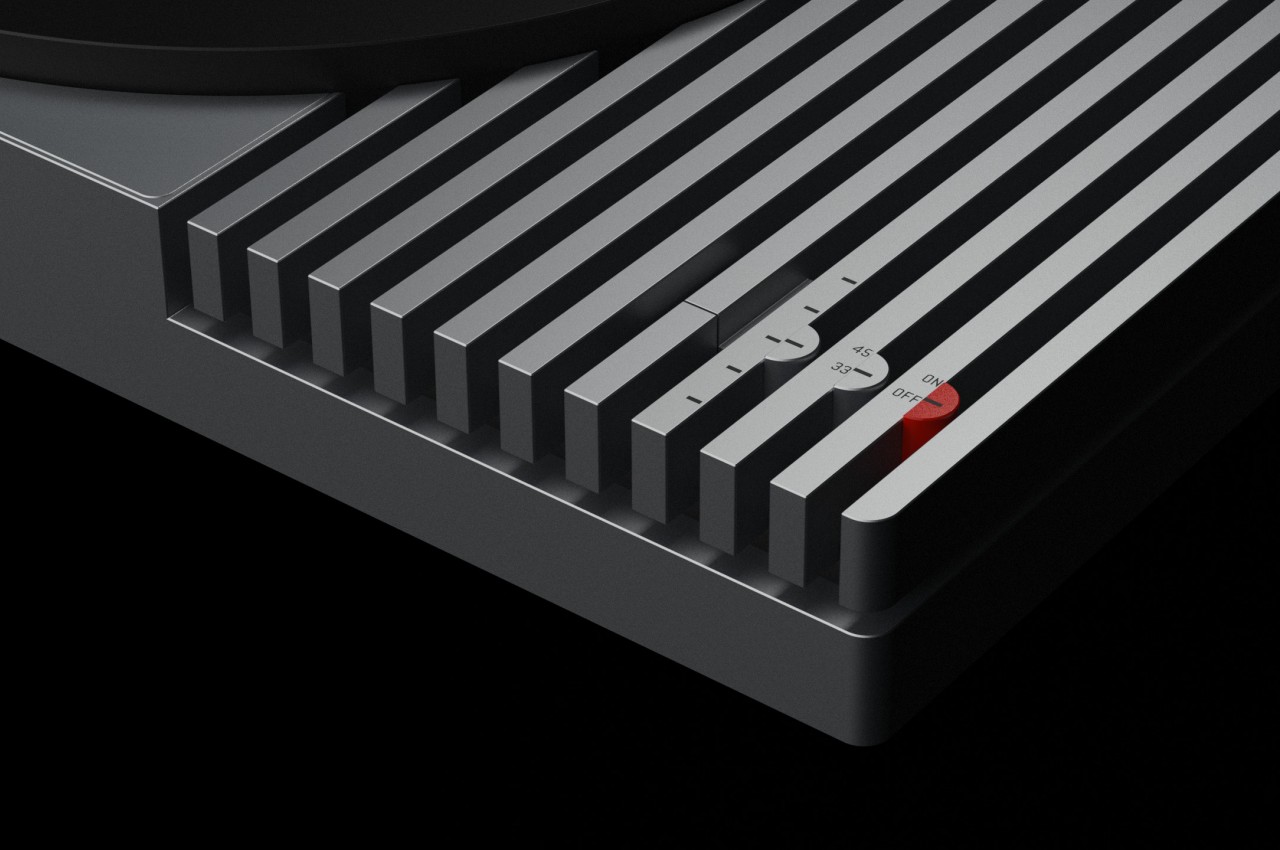
Three gaps between those slats also hide the machine’s controls in plain sight. While most record players use buttons and dials, the RYTM record player uses less ambiguous sliders for volume, speed (denoted by RPM or rotations per minute), and power. The sliders integrate so seamlessly into the design that you might not even notice their presence unless you look closely. At the same time, however, they offer a somewhat novel way to engage with the machine.
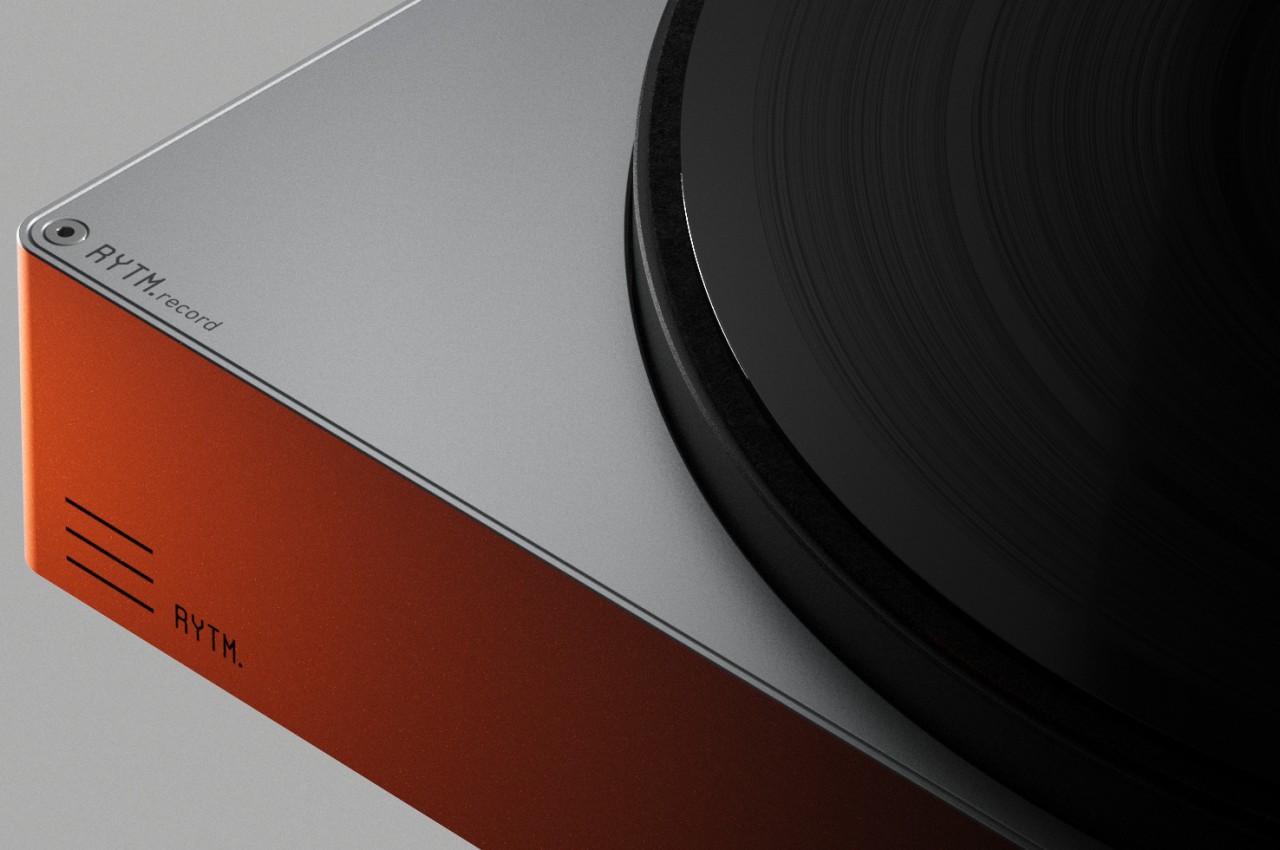
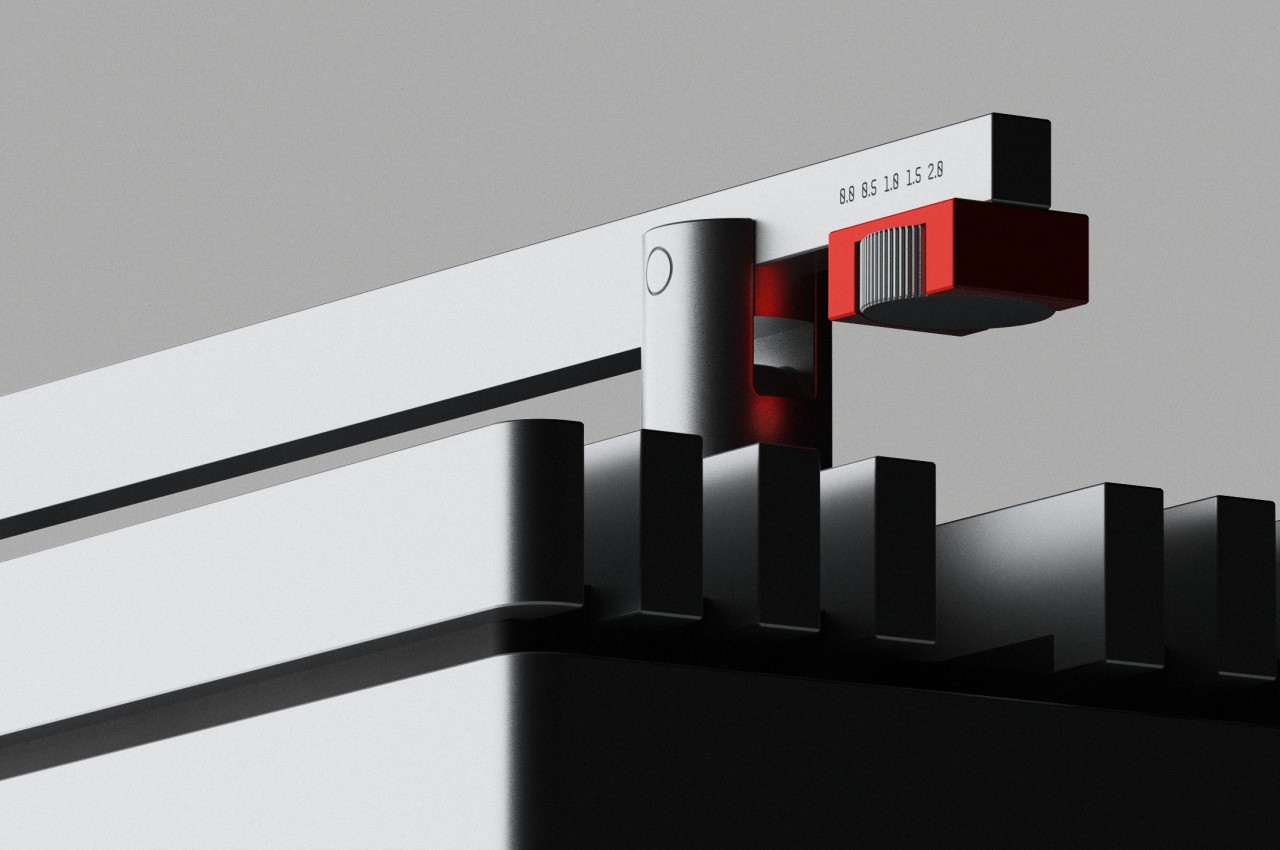
RYTM’s anodized aluminum body gives it a bit of a unique and almost industrial character. It’s not difficult to associate the motif with robot arms, similar to those used in automobile manufacturing plants, on a smaller scale, of course. In an age of mostly digital consumption of music, this interesting record player design concept offers a different and perhaps more memorable way to enjoy your tunes, creating a ritual that involves physical engagement to elevate your listening experience.
